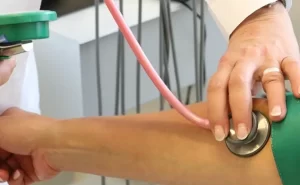Priapism Treatment for Patients with Refractory Idiopathic Ischemic Anxiety
Refractory idiopathic ischemic priapism, often known as RIIP, is a dangerous disorder that cannot be ignored and requires rapid medical attention. An erection that is protracted, painful, and unrelated to sexual desire does not react to first treatment attempts and lasts for more than four hours. This condition is referred to as erectile dysfunction (ED). A breakdown of the various therapy options for RIIP is as follows:
Initial Medical Intervention:
To prevent irreversible tissue damage in the corpus cavernosum, which is the erectile tissue in the penis, the treatment’s objective is to achieve detumescence, which occurs when the erection is reduced as quickly as possible. First-line interventions are typically attempted by urologists in the majority of instances, including the following:
Intracavernosal aspiration and medication: This procedure involves inserting a needle into the corpus cavernosum to aspirate blood and inject pharmaceuticals such as phenylephrine, a medication that constricts blood vessels. This helps to limit blood flow and diminish the erection.
Corporal Irrigation: If a penile erection that is continuous or prolonged, also known as priapism, occurs, it may be essential to undergo a medical intervention through the process of corporal irrigation. A condition known as priapism occurs when the penis remains erect for a lengthy period, typically for more than four hours, as a result of the absence of sexual stimulation.
If this condition is not addressed, it may result in permanent erectile dysfunction and damage to the tissues, making it a potential medical emergency.
Corporal irrigation is a medical procedure that should only be carried out by a competent healthcare expert.
If this occurs, the healthcare professional may irrigate the corpus cavernosum with a sterile saline solution. The corpus cavernosum consists of two sponge-like chambers located within the penis that become filled with blood while an individual is attempting to achieve an erection.
Detumescence is the process that is referred to as the removal of trapped blood from the corpus cavernosum and the promotion of the return of the penis to its flaccid state. The purpose of this corporal irrigation is to accomplish both of these goals.
A thin, sterile tube or catheter is usually inserted into the corpus cavernosum after the healthcare professional makes a small incision in the penis. The healthcare provider typically performs this operation. After that, the sterile saline solution is gently pumped into the corpus cavernosum. This efficiently flushes out the blood that has become trapped inside the corpus cavernosum, which enables the penis to return to its usual resting position.
It is common practice to combine this intervention with drugs that have the potential to assist in constricting the blood vessels and so facilitate the process of detumescence.
Corporal irrigation is a medical procedure that should only be carried out by a competent healthcare expert. This is because it involves some risks, such as the possibility of bleeding, infection, or damage to the penile structures. It is crucial to highlight that this procedure is a medical procedure.
If you are experiencing priapism, you must get medical assistance as soon as possible to avoid long-term issues and to maintain your sexual function.
Treatment on the Second Line:
Urologists may consider the following options if initial therapies are unsuccessful:
Distal Shunt techniques: These minimally invasive surgical techniques construct a bypass between the corpus cavernosum and the saphenous vein. This allows blood that has become trapped to drain and detumescence.
When you are suffering from RIIP, you must get prompt medical assistance from a trained urologist to receive a diagnosis and treatment for the condition.
A shunt is created straight from the corpus cavernosum to a giant vein in the groin by using proximal shunt procedures. These procedures are performed if distal shunts are unsuccessful or are not appropriate.
Other Choices Available in Extreme Circumstances:
It may be necessary to resort to more invasive procedures in extreme circumstances, such as when previous approaches are unsuccessful or when the danger of tissue damage is high:
Detumescence is caused by an operation known as percutaneous embolization, which involves stopping the blood vessels that supply blood to the corpus cavernosum.
Ligation of the Penile Artery: In highly unusual cases, surgeons may ligate (knot off) the penile artery to effectively halt the flow of blood to the penis. Because there is a possibility that this could result in erectile dysfunction, this is usually reserved for use as a last resort.
To add to the list of considerations:
The erectile tissue can be permanently damaged if it is not diagnosed and treated promptly. Time is of the essence in this matter. You must seek immediate medical assistance if you get an erection that lasts for more than four hours.
Even though idiopathic refers to an unknown cause, a comprehensive evaluation performed by a urologist may discover underlying issues that need to be treated.
Post-Treatment Care: Depending on the treatment strategy utilized, it may be important to receive follow-up care and drugs to prevent a recurrence of the condition.
It is important to remember that I cannot offer precise medical advice. When you are suffering from RIIP, you must get prompt medical assistance from a trained urologist to receive a diagnosis and treatment for the condition. Intervention at an early stage is essential to avoid consequences.













